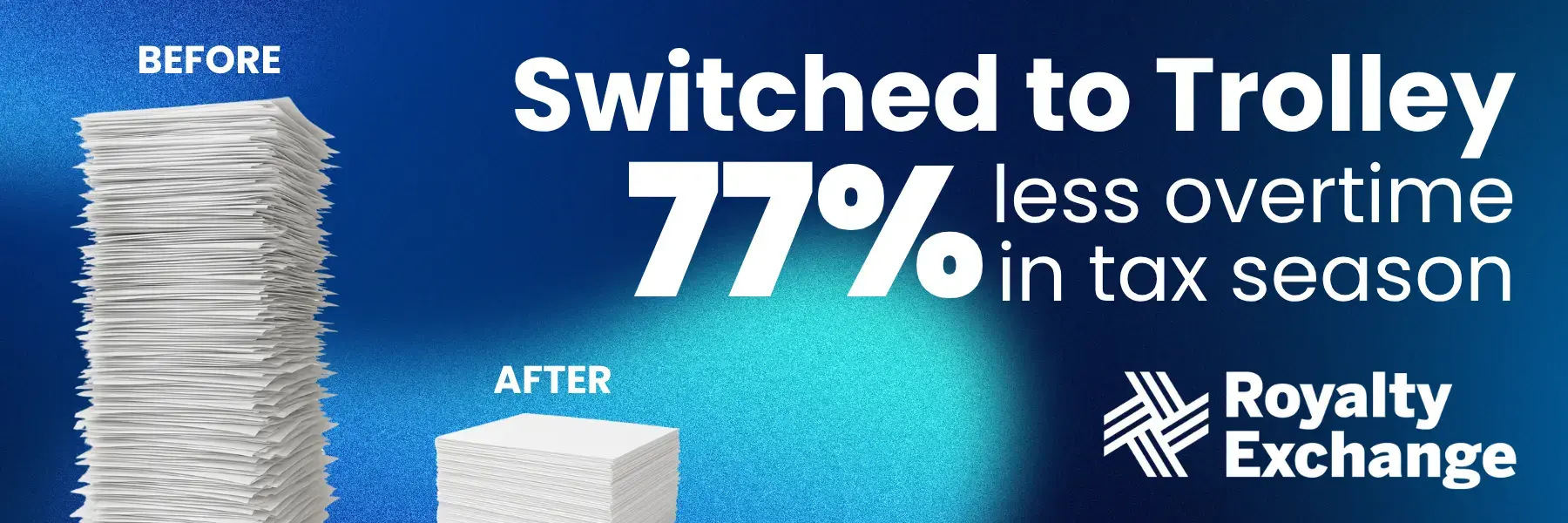When a foreign entity receives income from the United States, it may be subject to taxation under U.S. tax law. However, many countries have tax treaties with the U.S. that reduce or eliminate this tax liability for their residents. To claim these treaty benefits and avoid having taxes withheld on their income, foreign entities must provide a completed Form W-8 BEN-E to the U.S. payor.
Form W-8 BEN-E (Certificate of Status of Beneficial Owner for United States Tax Withholding and Reporting [Entities]) is used by foreign entities to certify their status as a beneficial owner for U.S. tax purposes. This form is required by the Internal Revenue Service (IRS) and is used to document that the entity is eligible for a reduced rate of withholding or exemption from U.S. taxes under a tax treaty or other agreement.
This issue came to the top of mind in 2019, when the United States and Spain signed a new tax treaty that exempted Spanish based recipients from having 30% automatically withheld from their payments from US sources.
Correctly filling out Form W-8 BEN-E is crucial for foreign entities to avoid unnecessary taxes and penalties.
In this guide, we will provide an overview of the purpose and requirements for this form. We will also discuss the different parts of the form and provide tips for completing it accurately.

What we cover
- What are Forms W-8?
- What is Form W-8 BEN-E?
- What is the difference between Form W-8 and Form 8233?
- What is FATCA?
- Why is Form W-8 BEN-E necessary?
- How to fill out Form W-8 BEN-E
- Tips for accurate completion
- Ensuring IRS compliance
- W-8 BEN-E FAQ
- Trolley & W-8 BEN-E collection: Ensuring accuracy and completeness
What are Forms W-8?
The family of forms know as W-8s are used by foreign individuals and entities to certify their status as a non-U.S. person for U.S. tax purposes. The IRS requires these forms for various tax-related transactions such as claiming treaty benefits, receiving income from U.S. sources, or opening a bank account in the U.S.
There are different types of Forms W-8, each used for a specific purpose and by different types of entities. Form W-8 BEN-E is specifically designed for foreign entities, while individual taxpayers must use Form W-8 BEN. Other types of W-8s include:
- W-8 IMY: Used by intermediaries or flow-through entities acting as a withholding agent on behalf of beneficial owners.
- W-8 EXP: Used by tax-exempt organizations or governments claiming treaty benefits.
- W-8 ECI: Used by foreign entities that are engaged in a trade or business in the U.S. and are claiming an exemption from withholding on certain income.
It is important to provide and use the correct form for your recipients’ specific situation to ensure compliance with U.S. tax laws and to help them avoid any potential penalties.
What is Form W-8 BEN-E?
Form W-8 BEN-E is a document issued by the IRS that serves as proof of an entity’s status as a beneficial owner for U.S. tax purposes. It is not used for individuals but rather for foreign entities such as corporations, partnerships, and trusts.
The purpose of this form is to provide information about the entity’s status and eligibility for tax treaty benefits or exemptions. By filling out this form, the entity is certifying that it meets the requirements set forth by U.S. tax laws.
When making non-U.S. source income payments to a non-resident alien (NRA) or a foreign entity (FE), a completed Form W-8 BEN-E must be filed with the withholding agent under Sections 1441, 1442, and 1443. Failure to provide this form may result in United States Tax withholding at a maximum rate of 30% on these payments.
What is the difference between Form W-8 and Form 8233?
While both forms deal with tax withholding and exemptions for non-U.S. persons, Form 8233 is more specialized, catering specifically to non-resident aliens providing personal services within the United States. Form W-8 is a family of forms used for a wider range of situations involving foreign entities and individuals.
What is FATCA?
FATCA (the Foreign Account Tax Compliance Act) is an additional reporting requirement for foreign entities with U.S. investments or assets. It aims to prevent cross-border taxation evasion by requiring foreign financial institutions to report information about their U.S. account holders to the IRS.
Form W-8 BEN-E is one of the forms used by foreign entities to certify their status for U.S. tax withholding purposes. Specifically, it includes sections where the foreign entity can indicate its FATCA classification and provide information about its substantial U.S. owners, if applicable.
Why is Form W-8 BEN-E necessary?
For foreign entities receiving income from the U.S., it is crucial to complete Form W-8 BEN-E accurately to avoid over-taxation. The IRS uses this form to determine if an entity is eligible for reduced tax rates or exemptions under a tax treaty.
Without a Form W-8 BEN-E, the U.S. payor will be required by law to withhold a certain percentage of taxes on the entity’s income. This can result in unnecessary taxes being paid, which can lead to complications and delays in receiving income.
IRS requirements for tax treaty benefits
For an entity to be eligible for treaty benefits or exemptions, it must meet certain requirements set by the IRS. These include:
- The entity must be a foreign person for U.S. tax purposes.
- The income being received must be subject to taxation under U.S. tax laws.
- The entity must meet the requirements outlined in the specific tax treaty or agreement between its country of residence and the U.S.
- The entity must provide all necessary information and documentation on the form.
These requirements set out by the IRS ensure that only eligible entities receive treaty benefits or exemptions and prevent fraudulent claims.
How to fill out Form W-8 BEN-E
Form W-8 BEN-E consists of several parts, each requiring different information from the entity. Here is a breakdown of each part:
Part I: Identification of beneficial owner
This section requires the entity to provide basic information about non-U.S. entities such as name, country of residence, and tax identification number. If the entity is claiming treaty benefits, it must also provide the applicable article or section of the treaty.
Part II: Disregarded entity or branch receiving payment
If the entity is a disregarded entity or has a U.S. branch, this section must be completed with additional information. If not, this section can be left blank.
Part III: Claim of tax treaty benefits
This part is only required if the entity is claiming a tax treaty benefit. It requires specific information on the applicable treaty and the type of income being received.
Part IV: Certification
The final part of the form must be signed and dated by an authorized person from the entity. This certifies that all information provided is true and accurate.
Tips for accurate completion
When filling out Form W-8 BEN-E, it is important to ensure that all required information is provided accurately. Here are some tips to keep in mind:
- Make sure the entity’s name and other identifying information match the official documents issued by its country of residence.
- Provide the entity’s tax identification number or a valid exemption code if applicable.
- Clearly indicate which treaty benefits are being claimed and provide the necessary information on the specific treaty.
- Have an authorized person from the entity sign and date the form.
By following these tips and carefully completing Form W-8 BEN-E, foreign entities can ensure that they receive the correct tax treatment for their income from the U.S.
Ensuring IRS compliance
When working with foreign entities receiving income from the U.S., it is important to understand and comply with the requirements for collecting Form W-8 BEN-E. Failure to do so may result in unnecessary taxes being withheld from payments or penalties being imposed by the IRS.
By completing this form accurately and providing all necessary information, foreign entities can ensure that they receive the full benefits of any applicable tax treaty or exemption. It is always recommended to seek professional advice when dealing with U.S. taxes and stay updated on any changes in tax laws or regulations.
Understanding and properly utilizing Form W-8 BEN-E can benefit both foreign entities and their ties with the U.S. by reducing tax liability and promoting compliance with U.S. tax laws.
W-8 BEN-E FAQ
To make sure you have all the information you need, here are some frequently asked questions about Form W-8 BEN-E:
What is the difference between W-8 BEN and W-8 BEN-E?
Both forms serve as proof of a foreign entity’s status for U.S. tax purposes, but they differ in terms of who can use them. Form W-8 BEN is used by individuals to claim tax treaty benefits or exemptions, while Form W-8 BEN-E is specifically for entities.
For example, a foreign corporation would use Form W-8 BEN-E to claim treaty benefits, while an individual would use Form W-8 BEN.
What is meant by a non-resident alien (NRA)?
An NRA is a person who is not a U.S. citizen or resident but receives income from the U.S., such as wages, interest, dividends, etc. NRAs are taxed differently than U.S. residents and citizens. NRAs can be split into two categories: individuals and entities. Individuals are required to file Form W-8 BEN, while entities must use Form W-8 BEN-E.
Is it necessary for all foreign entities to file Form W-8 BEN-E?
Yes. Form W-8 BEN-E is provided to the withholding agent (not directly to the IRS) by foreign entities to establish their status for tax withholding purposes. The withholding agent, in turn, uses the form to determine the appropriate withholding tax on payments to the foreign entity. The IRS may review such documentation during audits or inquiries.
What is considered non-U.S. source income?
Non-U.S. source income refers to any income that is earned outside of the U.S. and is not subject to U.S. taxation. Examples of this type of income include dividends from foreign corporations, interest on foreign bank accounts, or rental income from a property located outside the U.S. Non-U.S. source income is typically eligible for treaty benefits and exemptions.
What income is subject to U.S. taxation?
Non-resident aliens are subject to U.S. tax at a 30% rate on income they receive from U.S. sources that consist of the following:
- Interest – This includes interest on bank accounts, bonds, notes, and other financial instruments.
- Dividends – This includes distributions from U.S. corporations or mutual funds.
- Rents – This includes income from rental properties located in the U.S.
- Royalties – This includes payments for the use of intellectual property or natural resources located in the U.S
- Other Fixed or Determinable Annual or Periodic (FDAP) Income – This includes any other type of periodic income, such as compensation for services rendered in the U.S.
- Premiums – This includes insurance premiums paid by a U.S. person.
- Annuities – This includes payments from an annuity contract issued or purchased in the U.S.
- Compensation for, or in expectation of, services performed – This includes salaries, wages, commissions, bonuses, and other forms of compensation for services rendered in the U.S.
- Gambling winnings – This includes income from gambling activities that occur within the U.S.
- Substitute payments in a securities lending transaction – This includes payments made to non-U.S. persons for the temporary use of securities.
- Other fixed or determinable annual or periodical gains, profits, or income – This includes any other type of income not specifically mentioned that is derived from U.S. sources.
However, many tax treaties and agreements reduce or eliminate this withholding tax on certain types of income. Form W-8 BEN-E is used to claim these treaty benefits or exemptions.
Who can sign a W-8 BEN-E?
An authorized person from the foreign entity must sign the form. This could be a director, officer, or any other individual with the legal authority to act on behalf of the entity. The signature should also include the date it was signed and indicate their capacity as an authorized person for the entity.
It is important to note that this person must be a non-resident Alien. If the entity is disregarded, the person signing must be an NRA individual with knowledge of the entity’s operations and income.
Trolley & W-8 BEN-E collection: Ensuring accuracy and completeness
In conclusion, Form W-8 BEN-E serves as vital documentation for foreign entities receiving income from U.S. sources. By understanding and properly completing this form, these entities can benefit from reduced tax liability and compliance with U.S. tax laws.
It is essential to regularly review and update this form as necessary, as well as stay informed of any changes in U.S. tax laws and regulations that may affect the entity’s status or eligibility for treaty benefits or exemptions.
Seeking professional advice when dealing with U.S. taxes is always recommended to ensure accuracy and compliance.
Trolley’s cloud-based payouts platform can also assist with managing and organizing the collection of Form W-8 BEN-E from your recipients, providing a streamlined process for foreign entities to claim treaty benefits or exemptions on payments you’ll be making to them.
Contact Trolley today to learn more about how we can simplify your U.S. tax compliance.
This article is intended for educational and informational purposes only. Through the publication of this article, Trolley is not offering any legal, taxation, or business advice. We strongly encourage each reader to consult with their relevant lawyer, accountant, or business advisors with respect to the content of this post. Trolley assumes no liability for any actions taken based on the content of this or other articles.












